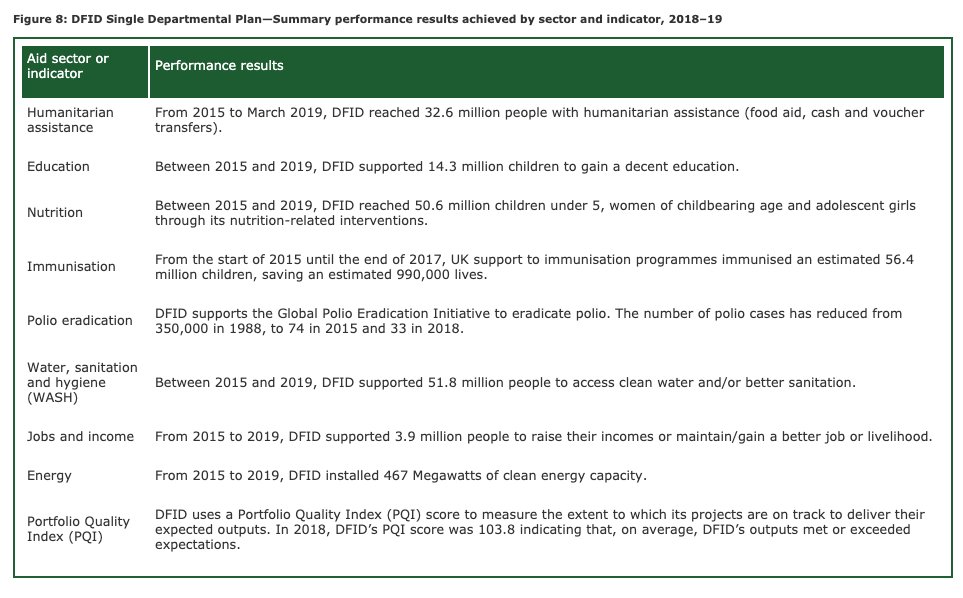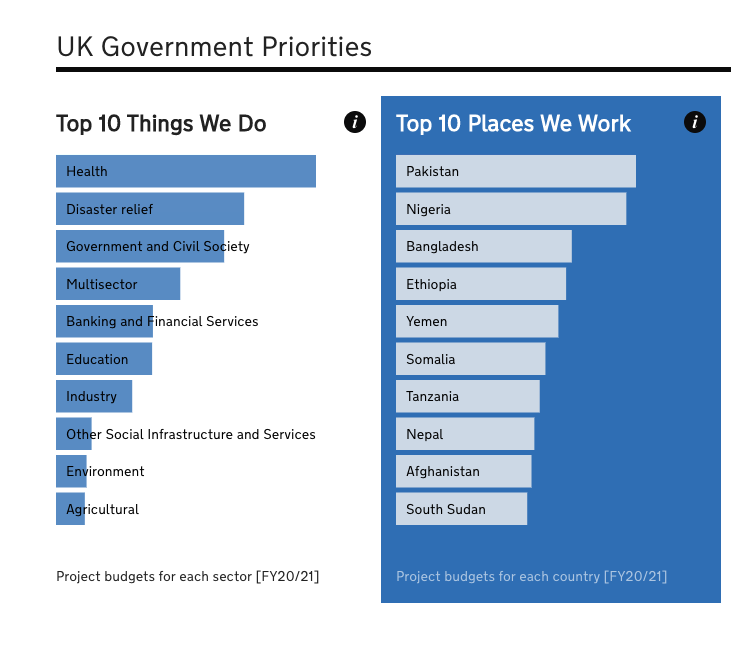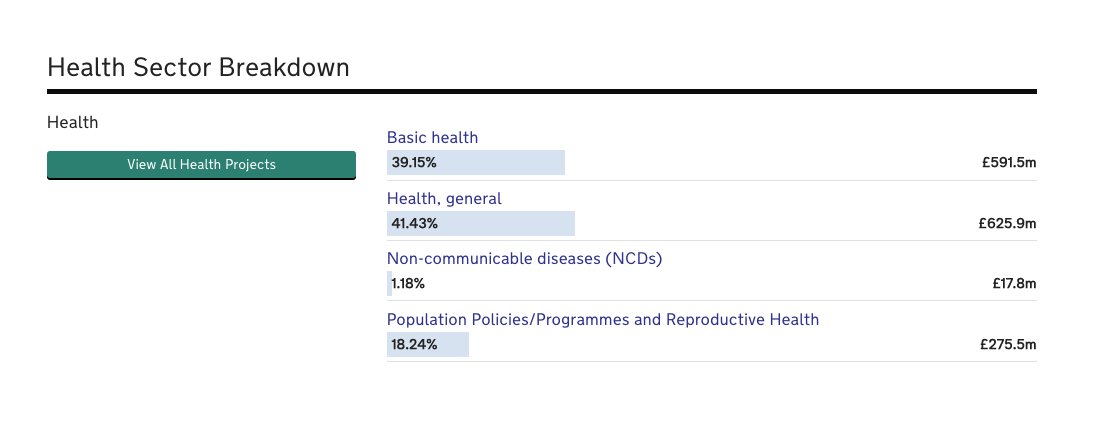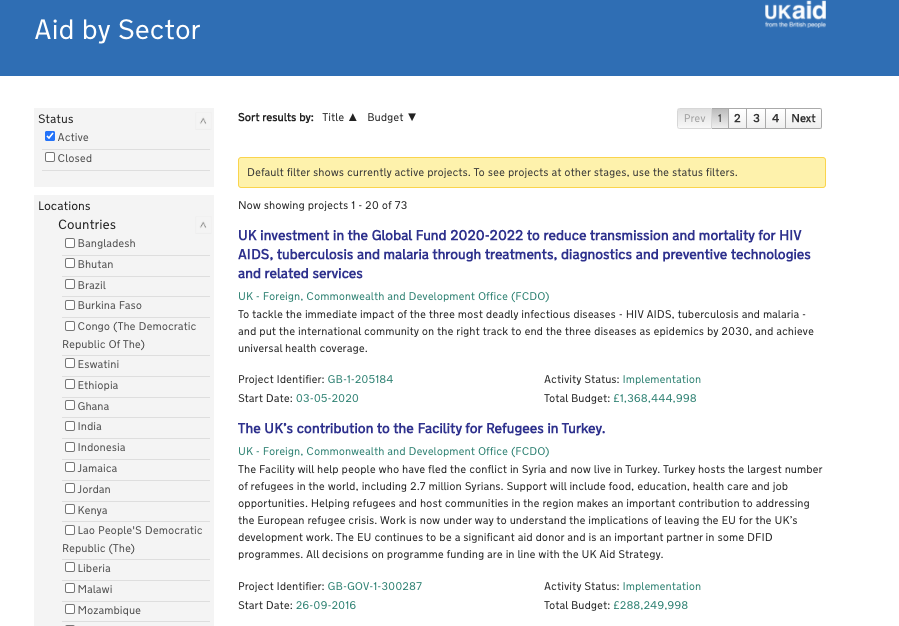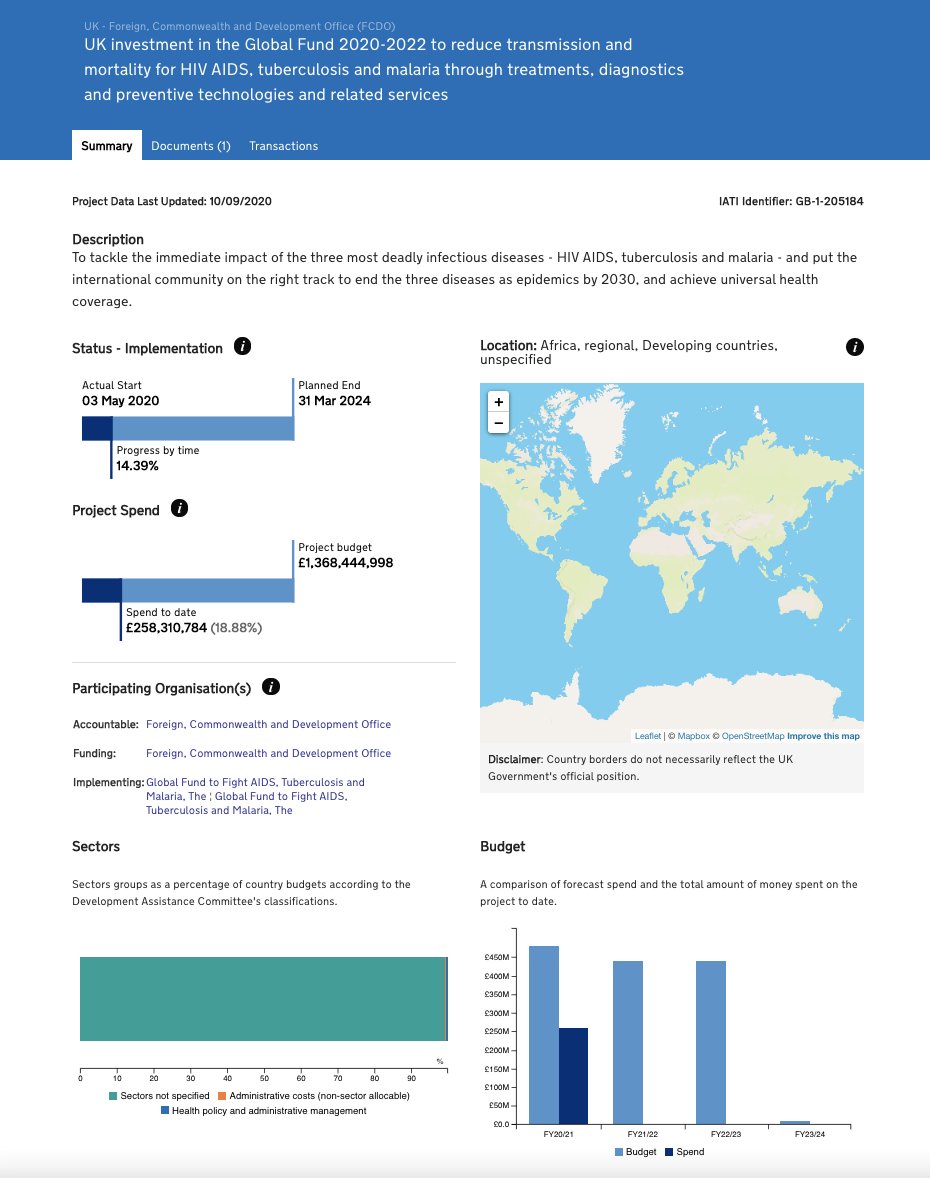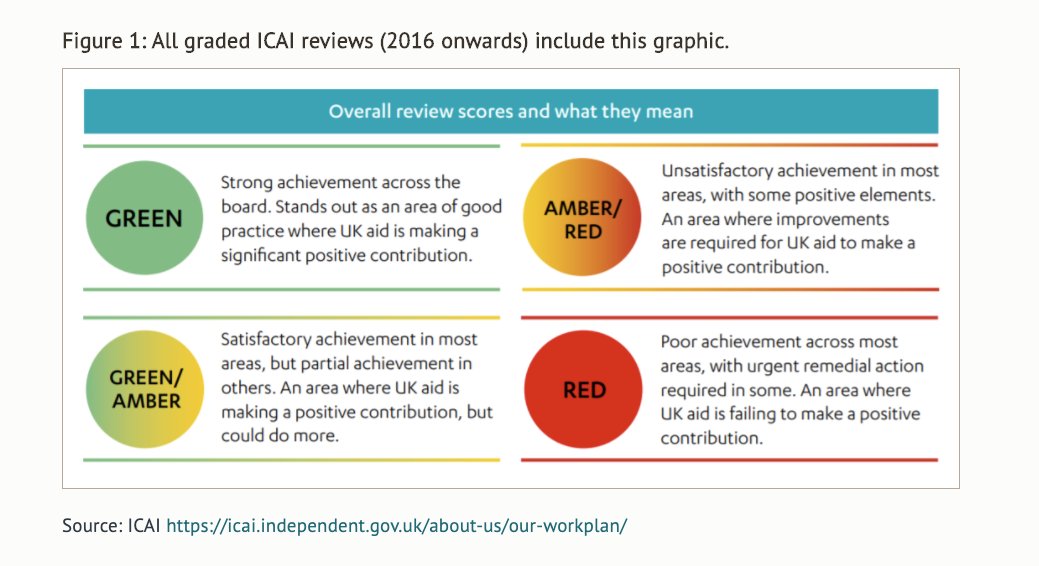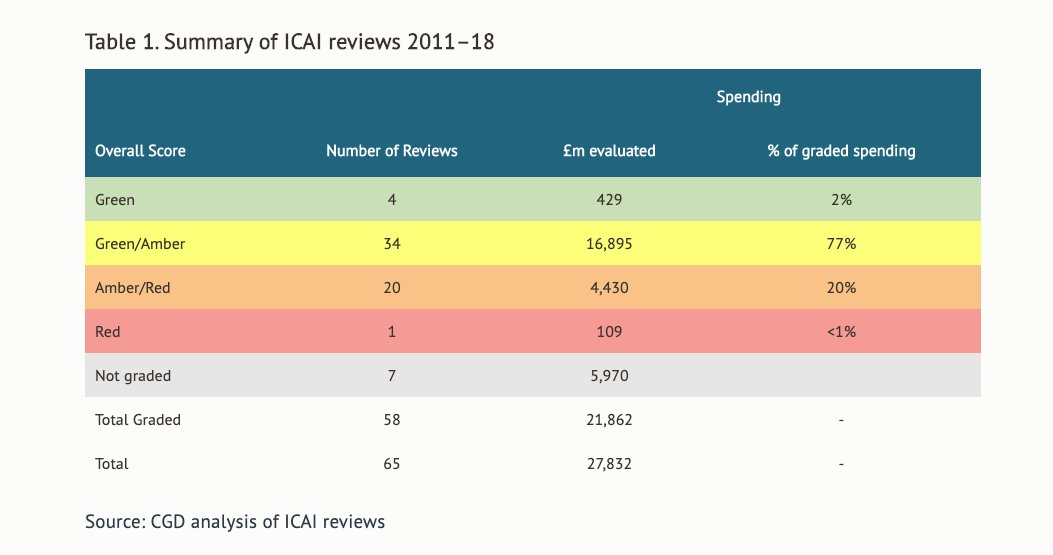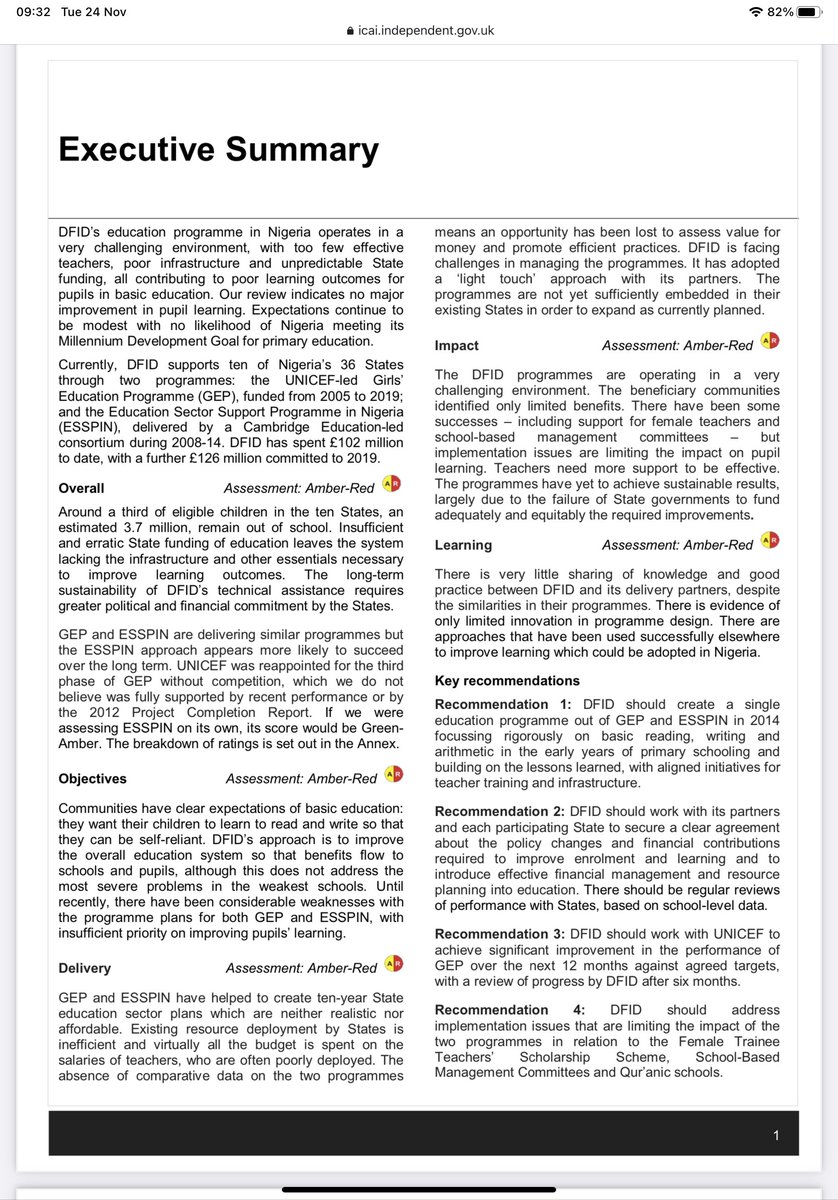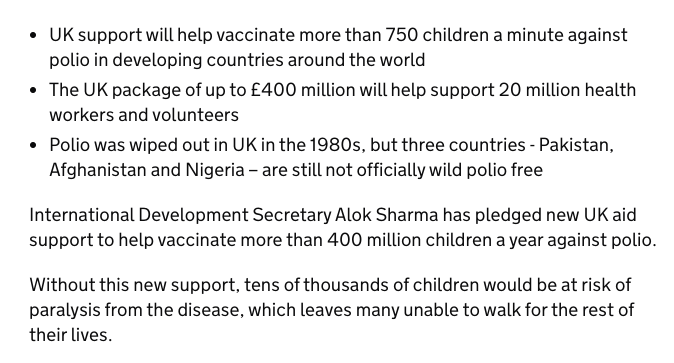Cutting the aid budget is a bad idea – I say this as a long time sceptic of *development* aid, and admirer of the great PT Bauer, one of the greatest economists and aid sceptics of the 20th Century.
The way UK aid is run is a huge *victory* for people like Bauer.
The way UK aid is run is a huge *victory* for people like Bauer.
Unlike most of the aid of the 20th Century, UK aid is mostly govt-to-govt, and is not aimed at economic growth. Both of these can be *barriers* to helping the developing world.
DfID focuses on humanitarian aid, health interventions like vaccines, and poverty reduction.
DfID focuses on humanitarian aid, health interventions like vaccines, and poverty reduction.
Here& #39;s how the UK spends its aid money. Not on hydroelectric dams, but on polio eradication, vaccinations for children, food aid, clean water, and other humanitarian programmes.
In 2015-17 we immunised 56.4 million children, saving 990,000 lives. https://publications.parliament.uk/pa/cm5801/cmselect/cmintdev/215/21507.htm">https://publications.parliament.uk/pa/cm5801...
In 2015-17 we immunised 56.4 million children, saving 990,000 lives. https://publications.parliament.uk/pa/cm5801/cmselect/cmintdev/215/21507.htm">https://publications.parliament.uk/pa/cm5801...
Any member of the public can view virtually every project we spend money on at the Development Tracker site: https://devtracker.fcdo.gov.uk/ .">https://devtracker.fcdo.gov.uk/">...
It is amazingly transparent and easy to use. You can see the areas and sub-categories we spend on, and details of individual projects.
It is amazingly transparent and easy to use. You can see the areas and sub-categories we spend on, and details of individual projects.
The projects are reviewed independently. 79% of reviewed spending was judged to be making a positive contribution, the remaining fifth to need improvements. https://www.cgdev.org/blog/how-effective-uk-aid-assessing-last-8-years-spending">https://www.cgdev.org/blog/how-...
What is striking is how frank the independent reviews are, and that they are public, available to anyone to read. Here& #39;s an example of an Amber/Red project doing education in Nigeria. Imagine if other govt departments, like the MoD, did this.
https://icai.independent.gov.uk/wp-content/uploads/ICAI-Nigeria-Education-report.pdf">https://icai.independent.gov.uk/wp-conten...
https://icai.independent.gov.uk/wp-content/uploads/ICAI-Nigeria-Education-report.pdf">https://icai.independent.gov.uk/wp-conten...
So UK aid is focused on health and humanitarian interventions, and is remarkably transparent and scrutinised.
Some of it fails and there is certainly some waste, but most of it does more good than harm and we can identify the waste to improve things.
Some of it fails and there is certainly some waste, but most of it does more good than harm and we can identify the waste to improve things.
This is what aid sceptics have always argued for: don& #39;t try to buy your way to economic development, because that& #39;s not how growth usually happens, and the unintended consequences of govt-to-govt aid spending can be terrible.
But *do* provide humanitarian support.
But *do* provide humanitarian support.
Don& #39;t conflate building hydroelectric dams in the Congo with vaccinating children against polio. Thanks to people like PT Bauer, we don& #39;t do the first kind of aid any more, we do the second kind. https://www.gov.uk/government/news/uk-aid-to-help-vaccinate-more-than-400-million-children-a-year-against-polio">https://www.gov.uk/governmen...
More in this thread. Thank you to @anonmugwump for letting me borrow some of his sources above. https://twitter.com/anonmugwump/status/1331164450498506752">https://twitter.com/anonmugwu...
If you want to read some of Bauer& #39;s criticisms of aid, here& #39;s a piece by him here – https://fee.org/articles/foreign-aid-an-instrument-for-progress/">https://fee.org/articles/...
And a longer paper by Andrei Schleifer on his work here: https://papers.ssrn.com/sol3/papers.cfm?abstract_id=2261244">https://papers.ssrn.com/sol3/pape...
And a longer paper by Andrei Schleifer on his work here: https://papers.ssrn.com/sol3/papers.cfm?abstract_id=2261244">https://papers.ssrn.com/sol3/pape...
Most people do care about the welfare of children in poor countries who might get polio, but many fear aid "does more harm than good".
It has in the past, but the UK& #39;s aid *today* does not. Cutting it now would be a terrible mistake and do much more harm than many people think.
It has in the past, but the UK& #39;s aid *today* does not. Cutting it now would be a terrible mistake and do much more harm than many people think.

 Read on Twitter
Read on Twitter